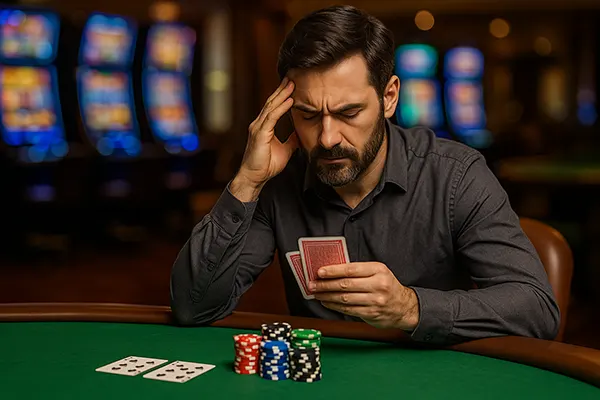
How Professional Casino Players Train Concentration and Endurance
In professional gambling, mental sharpness and resilience often matter more than pure luck. Players who operate at the highest level know that concentration and endurance are not natural traits but skills honed through discipline, routines, and strategic training. This article explores how professionals cultivate these qualities to remain focused during long sessions and maintain consistency under pressure.
Mental Training Techniques for Sustained Focus
Professional players dedicate time to mental conditioning, which includes meditation, mindfulness, and cognitive exercises. Meditation helps them regulate stress and sharpen attention, while mindfulness enables them to stay present, avoiding distractions during critical hands or spins. Cognitive training, such as memory tasks or problem-solving games, strengthens neural pathways that are crucial for strategic thinking.
They also adopt structured routines before playing, similar to athletes preparing for competition. These routines often involve breathing exercises, mental rehearsals, and reviewing strategies. By doing so, they create a stable psychological state that supports consistent decision-making in high-stakes environments.
Another essential element is emotional control. Professionals understand that frustration or overconfidence can cloud judgement. Through consistent practice, they learn to manage emotions, accept losses rationally, and avoid impulsive choices, ensuring their concentration remains intact across lengthy sessions.
The Role of Rest and Recovery
Endurance is not built solely through continuous play; it requires deliberate recovery periods. Many professionals follow strict schedules that include short breaks during sessions, allowing their minds to reset and prevent cognitive fatigue. These breaks often involve stretching, hydration, or light physical movement.
Outside of play, quality sleep is treated as a cornerstone of preparation. Research consistently shows that well-rested individuals demonstrate better concentration, reaction time, and memory—qualities essential for sustained performance in gambling. Players therefore invest in consistent sleep patterns to support long-term endurance.
Recovery also extends to recreational activities that balance mental strain. Some players pursue hobbies like reading, sports, or creative arts to maintain psychological flexibility, which in turn enhances their resilience at the tables or machines.
Physical Fitness and Its Impact on Performance
While gambling may appear sedentary, physical fitness plays a significant role in maintaining concentration and endurance. Regular cardiovascular exercise improves blood circulation, which enhances brain function and alertness. Strength training, meanwhile, supports posture and reduces fatigue during extended periods of sitting.
Nutrition is another pillar of physical readiness. Professional players focus on balanced diets that provide steady energy without spikes or crashes. Foods rich in complex carbohydrates, proteins, and healthy fats support both body and mind, while hydration ensures mental clarity across hours of gameplay.
Some players integrate biohacking strategies, such as tracking heart rate variability or using supplements under professional guidance. These methods are designed to monitor physical stress and optimise performance, demonstrating that endurance at the casino table is as much about physical preparation as mental strength.
Developing Long-Term Stamina
Building physical stamina is a gradual process, requiring consistency and patience. Professionals often compare their preparation to marathon training: the goal is not short bursts of energy but sustained endurance. Regular workouts, combined with progressive increases in intensity, mirror the demands of long playing sessions.
They also place emphasis on ergonomics. Comfortable seating, proper desk height, and supportive equipment reduce physical strain, allowing them to maintain concentration without distraction from discomfort. This attention to detail helps protect both health and performance.
Ultimately, physical fitness reinforces mental resilience. A strong body supports a strong mind, enabling professionals to endure the psychological challenges of long competitions while maintaining sharp focus and sound decision-making.

Strategic Habits for Endurance in Competitive Play
Endurance is not only about physical and mental training but also about strategy. Professional players manage their energy and focus by carefully structuring their playing sessions. They avoid marathon sessions without rest and instead break their gameplay into manageable blocks that maximise efficiency.
Time management also plays a crucial role. By setting strict limits on session length and adhering to them, professionals protect themselves from overexertion and decision fatigue. They understand that concentration has natural limits and plan accordingly to maintain peak performance across tournaments or long matches.
Finally, they cultivate adaptability. Different games and formats require varied levels of focus and stamina. Professionals train themselves to switch strategies fluidly, conserving mental energy for critical moments and maintaining steady performance regardless of external conditions.
Balancing Discipline and Flexibility
While strict routines are important, professionals recognise the need for flexibility. They adapt their approaches depending on circumstances, whether it is the duration of an event, the complexity of the game, or unexpected challenges that arise. This balance between discipline and flexibility ensures that their concentration and endurance are sustainable over the long term.
They also emphasise continuous learning. Analysing past performances, reviewing mistakes, and studying new strategies help players refine their methods. This proactive approach prevents stagnation and strengthens resilience, keeping their endurance sharp in evolving environments.
In the end, endurance and concentration are not isolated skills but interconnected habits. By integrating mental, physical, and strategic practices, professional casino players maintain the high standards required for consistent success in a demanding field.



